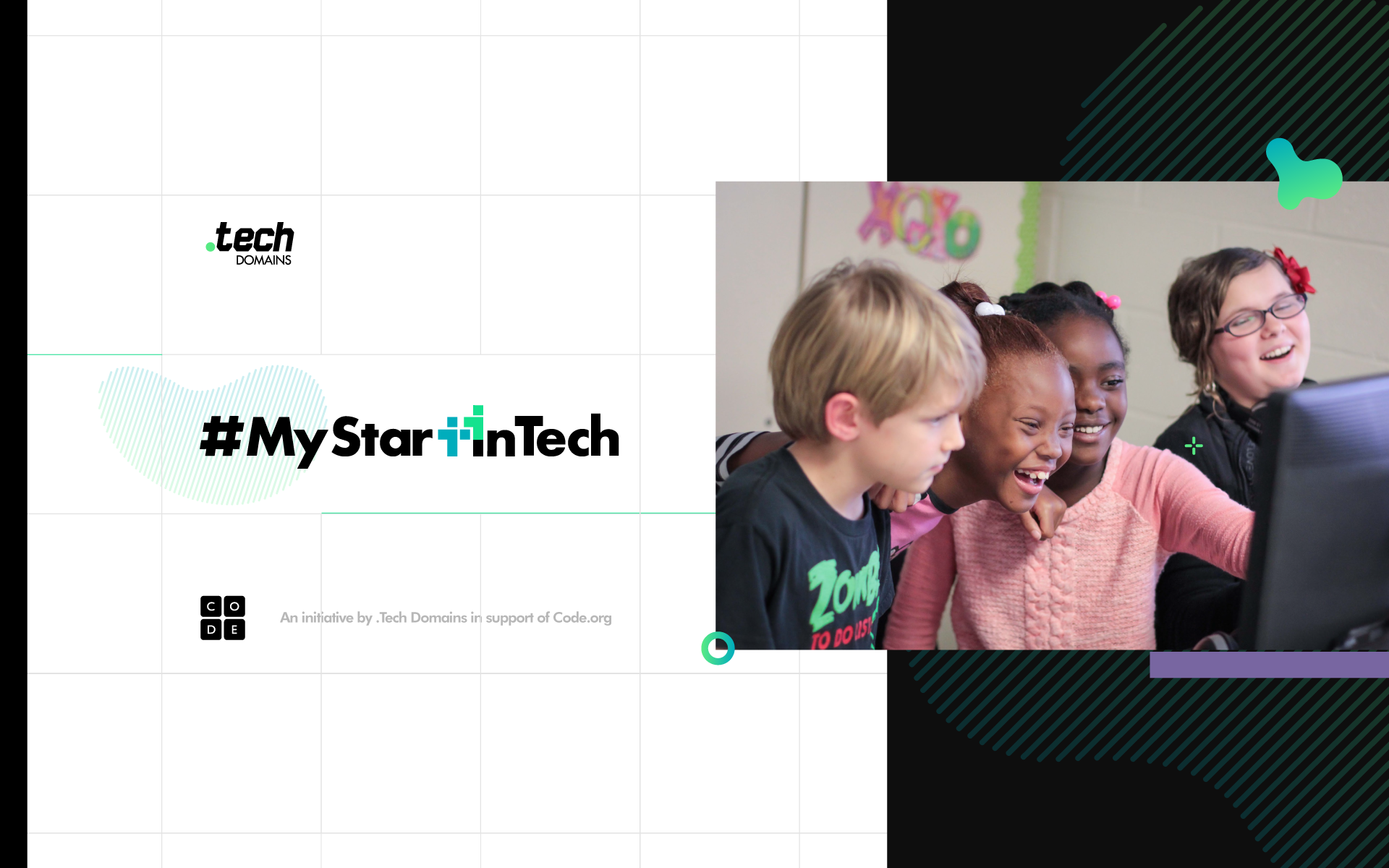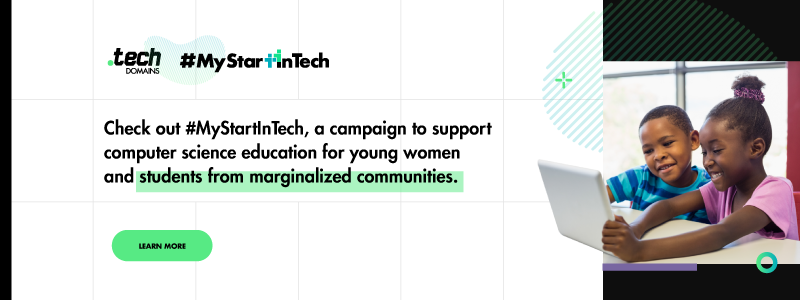The tech workforce in the US is not growing at an optimal pace. The number of schools offering computer science is not enough which is impacting the access of computer science to young women and students from marginalized communities.
The truth is that there are over 410,020 open computing jobs in the US but only 71,226 computer science students graduated into the tech workforce last year.
This is because only 47% of public high schools in the US offer computer science which deeply impacts its access to young women and students from marginalized communities.
To address this pressing issue, we have launched #MyStartInTech, a campaign dedicated to drawing attention to this cause and in turn, help widen access to computer science in schools.
As part of this campaign, we present the #MyStartInTech interview series where some of the esteemed tech entrepreneurs and professionals in the industry share details about their journey in tech. With this, we hope to draw attention to the infinite opportunities that will lay open if young women and students are given the opportunity to study computer science.
In this interview, Patrick de Laive, Co-Founder of TNW, talks about how he got his start in the tech world.
Patrick de Laive is an experienced entrepreneur and the father of Bo and Denne. Along with taking care of co-founder responsibilities at TNW, he sporadically invests in startups. He is also a cherished speaker at tech events across the globe.

Let’s find out what he has to say!
When was your first interaction with Computer Science?
When I was eight years old, my mother started a business with a friend. The company was called Graduates and it was basically matching talent from university with corporations looking for new talent.
This was the late 80s. My mom had bought a computer, it was a commodore 64, to replace the typewriter. That evening we unboxed the commodore 64 and together we looked at the screen and started typing a letter. We encountered a big problem when ‘the cursor’ was reaching the end of the screen. How do we go to the next line? Where is the equivalent of punching back the typewriter? It took a while before we found the ‘enter’ button. Cool, but then the format of the page was really messed up when we started to change certain words.
“What a worthless device”, we thought.
But then… by accident, I pressed 1 key for a long time and when the cursor reached the end of the screen… it AUTMOMAGICALLY went to the next line! BOOM, my mind was blown. Wow! As of that moment I fell in love with computers and technology.
What nudged you into taking up a career in technology?
I studied Financial Economics and basically you learn to work at an investment bank afterward.
It was 2005 and the Internet was at the lowest point ever. The bubble had burst, nobody was working in the industry, but I knew I didn’t want to work at an investment bank and I was fascinated with an industry that was ongoing 24/7, also when you’re having dinner, out partying, or sleeping.
It was obvious that the Internet was promising. I took a leap and just started an online business to see where it would take me. The business failed, but I knew this was the industry I wanted to be in.
Everybody believed in something bigger, everybody had the feeling this was just the beginning of a great journey for the entire industry and everybody was very approachable, willing to share best practices and ideas, and informal. This is how business should be I thought, this is where I belong.
Why do you think access to computer literacy & its equal access in school is important?
In technology, people are judged upon their skills, their actions, and their creations – rather than background, school, or whereabouts.
Access to a computer and internet connection is access to a wealth of knowledge never seen before in the history of mankind. Most of it is free to access. What’s left is the eagerness to learn. Where access to knowledge used to be a privilege for the rich, now it’s a commodity for everyone regardless of where they are from and this by itself is huge.
The world is becoming more and more digital, digital skills are needed for companies to survive and thrive. Giving more people access to knowledge is not a zero-sum game, the society as a whole will benefit from giving kids across the world access to the internet and learn them how to work with computers and technology.
What do you think about .Tech Domains taking up this cause?
It’s a great cause and donating 100% of sales is a great and unheard-of promise.


